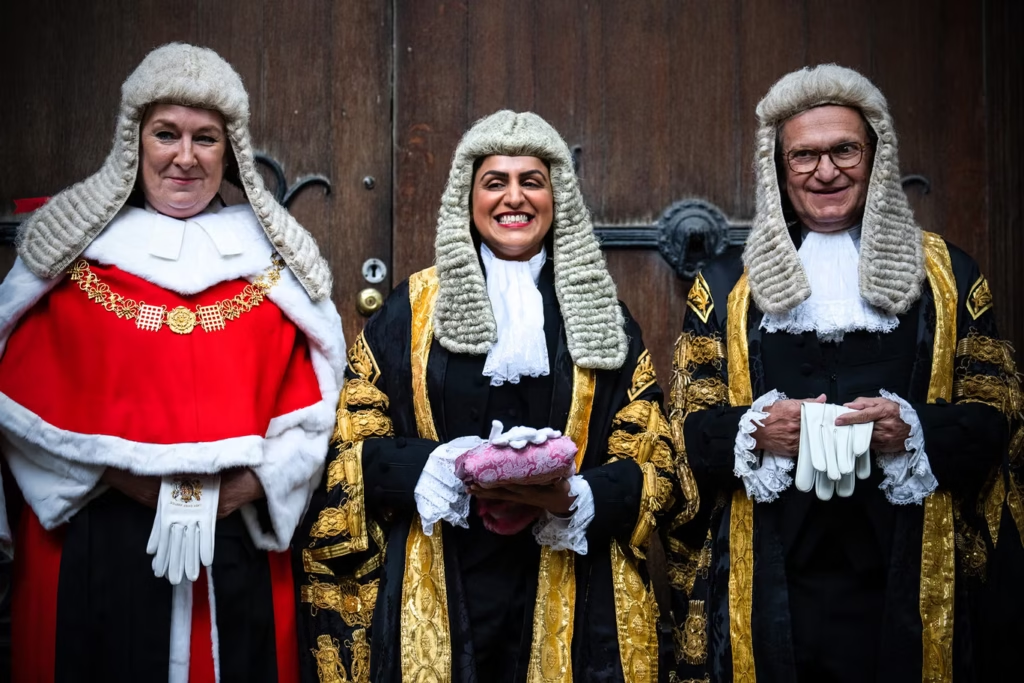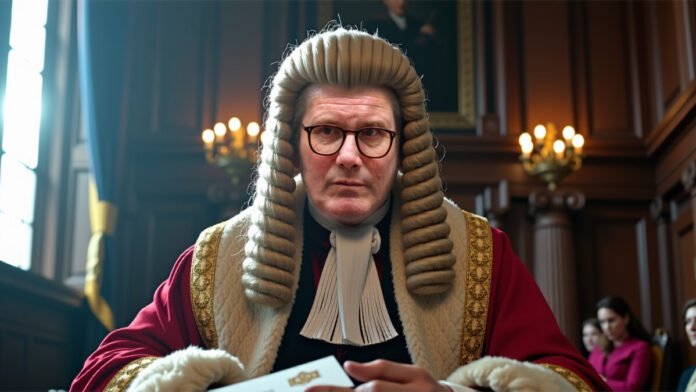From Magna Carta to Magistrates: Is Britain Abandoning Trial by Jury?
Former President of the Queen’s Bench Division, Sir Brian Leveson, has been appointed to carry out an independent review into the criminal courts.
Prime Minister Sir Keir Starmer appointed Sir Brian Leveson, renowned for his inquiry into press standards, to lead a “once in a generation” review of the court system. The commission will report to Justice Secretary Shabana Mahmood. Leveson is looking into the spiralling backlog of cases in England and Wales that has pushed the justice system to its breaking point.
Speaking candidly about the crisis, Sir Brian declared the current situation “not acceptable.” Few would disagree. Victims of rape are now waiting an appalling 48 months on average for justice, while the number of delayed murder trials has quadrupled over the past decade. These are devastating figures, compounded by the revelation that the Crown Court backlog has soared to 73,105 cases, nearly double what it was before the pandemic. These are not mere statistics; they are lives suspended, trauma prolonged, justice denied.

Justice Secretary Shabana Mahmood announced that the retired judge, most famous for chairing the inquiry into press standards a decade ago, was given instruction “no reform is off the table” to deal with the crisis.
But the proposed “solutions” on the table should trouble anyone who values democracy. Among them is the removal of the ‘right to a jury trial‘ for all but the most serious offences and magistrates could be empowered to hand out sentences beyond their current maximum of 12 months.
This is no small tweak to the system—it’s a seismic shift that risks tearing apart centuries of legal tradition and justice.
The Unbroken Line from Magna Carta to Today

To understand what is truly at stake, we must look beyond the sterile language of administrative reform and recognise the profound historical struggle that has brought us to this moment. Trial by jury isn’t merely an administrative feature of the justice system; it is a bedrock principle of our democracy that stretches back to Magna Carta in 1215, when it was established that “no free man should be imprisoned or stripped of his rights… except by the lawful judgment of his equals.” in other words the right to trial by jury…
John Lilburne, that indomitable Leveller who became the quintessential martyr of judicial resistance. Tried repeatedly for seditious libel, Lilburne consistently challenged the very legitimacy of courts that denied those fundamental rights as he once stated: “I know nothing that makes a man a Magistrate over me but law, and while he walks by the rules of that Law which make him a Magistrate, I shall own him as a Magistrate, but when he tramples it under his feet, and walks by the law of his own will, I for my part in such a condition cannot own him for a Magistrate.” These were not privileges handed down by the ruling class but hard-won victories by ordinary people, a fundamental assertion of citizen’s rights against institutional tyranny.
Ironically, a distant relation of John Lilburne, Thomas Jefferson, the 3rd U.S. President and Founding Father, also understood the profound connection between democracy and justice that trial by jury represents. Jefferson eloquently captured this in a letter to Thomas Paine, stating, “I consider trial by jury as the only anchor ever yet imagined by man, by which a government can be held to the principles of its constitution.”
There are some things our “colonial cousins” got it right—and Britain would do well to remember them.
A Two-Tier Injustice

What looms is the prospect of a two-tier justice system, a Trojan horse disguised as administrative reform. Magistrates’ courts, already overburdened and under-resourced, would become the default mechanism for most criminal proceedings. This isn’t merely a bureaucratic adjustment—it’s a fundamental reshaping of the relationship between state and citizen.
Removing jury trials doesn’t streamline justice; it dismantles it. We’re witnessing the creation of a legal landscape where access to a full trial becomes a privilege of the wealthy with good barristers, not a right of all. The proposed reforms strike at the heart of a principle fought for across generations—that justice should be rendered by one’s peers, not bureaucratic decree.
The numbers tell a damning story. In 2021, the Conservatives pledged to cut the court backlog by 7,000 cases by March 2025. Instead, it increased by more than 7,000. Pandemic disruptions exacerbated the problem, but these delays were mounting long before lockdown and have continued unabated. This is not a system that needs surgical reform—it needs comprehensive reconstruction.
Magistrates, well-intentioned as they might be, cannot replace the collective judgment of a jury. Ordinary people judging ordinary people—this is the critical check on state power that generations of activists, from John Lilburne to Thomas Paine, understood was essential to maintaining democratic accountability.
To dismantle this legacy under the guise of efficiency is to betray every hard-won right secured through centuries of struggle. Each “efficiency” measure is a surgical cut to the body of democratic justice, slowly bleeding out the principles that define a fair society.
Sir Brian Leveson’s review must be a line in the sand. We owe it to victims, to defendants, and to ourselves to uphold a justice system that serves fairness, not expediency. The road to safer streets and swifter justice cannot be paved by trampling on the rights of the many.
Justice delayed is not justice denied—but justice fundamentally altered is justice destroyed. It is time to hold the government accountable—not just for fixing the backlog, but for ensuring that in their rush to reform, they don’t dismantle the very principles that define justice in this country and is a cornerstone of our democracy.
Support Independent Journalism Today
Our unwavering dedication is to provide you with unbiased news, diverse perspectives, and insightful opinions. We're on a mission to ensure that those in positions of power are held accountable for their actions, but we can't do it alone. Labour Heartlands is primarily funded by me, Paul Knaggs, and by the generous contributions of readers like you. Your donations keep us going and help us uphold the principles of independent journalism. Join us in our quest for truth, transparency, and accountability – donate today and be a part of our mission!
Like everyone else, we're facing challenges, and we need your help to stay online and continue providing crucial journalism. Every contribution, no matter how small, goes a long way in helping us thrive. By becoming one of our donors, you become a vital part of our mission to uncover the truth and uphold the values of democracy.
While we maintain our independence from political affiliations, we stand united against corruption, injustice, and the erosion of free speech, truth, and democracy. We believe in the power of accurate information in a democracy, and we consider facts non-negotiable.
Your support, no matter the amount, can make a significant impact. Together, we can make a difference and continue our journey toward a more informed and just society.
Thank you for supporting Labour Heartlands












